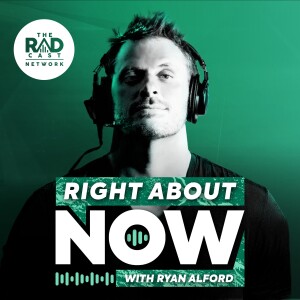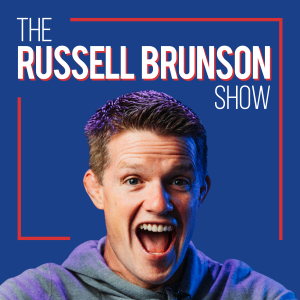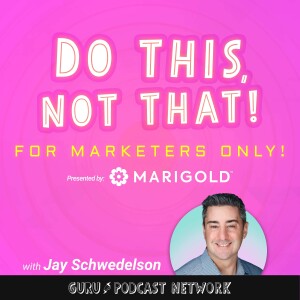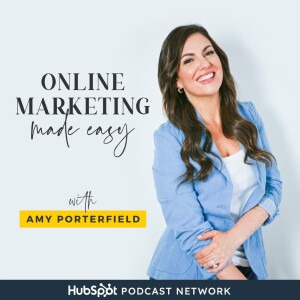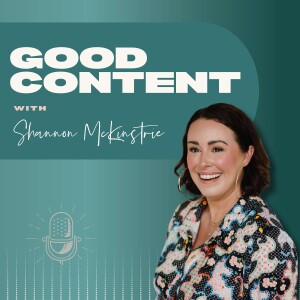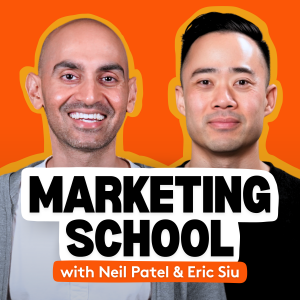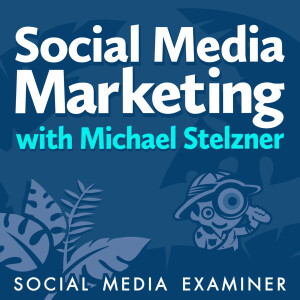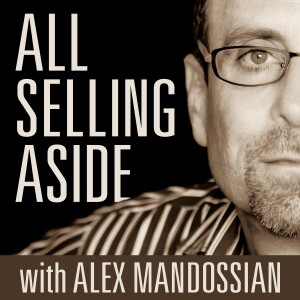

All Selling Aside with Alex Mandossian | "Seeding Through Storytelling is the 'New' Selling!"
https://alexmandossian.libsyn.com/rssEpisode List

Misdiagnosing Your Progress
The rise and fall of nations, racism, and even genocide can be explained by a misdiagnosis of progress. This is also called the progress fallacy and it is one of the riskiest assumptions that you can make in life and business. Rather than thinking of progress as a noun, think of it as a verb. You are progressing along your path in entrepreneurship which means that for every failure you are doubling your success rate because you now know what NOT to do. Here is the thing, in almost any given scenario, event A did not necessarily cause event B to happen. Think about it, you download a new software and sometime later your computer crashes. Was event A the root cause of event B? Not necessarily right? This same concept can be carried throughout all levels of life and business. Listen in to learn about the root cause and why finding that root is the most important thing you can do. Your three key insights are: What the root cause of misdiagnosing your progress really is. Why progress misdiagnosis can cause suffering for humanity. How to stop progress misdiagnosis so that you can live a happier, healthier, and wealthier life. Don’t let root cause misdiagnosis stop you from succeeding in sales, business, and life! In This Episode: [04:45] - Learn the three key insights Alex shares in this episode. [07:05] - Progress is important but is it a noun or a verb? [08:56] - Why do you go the wrong direction enthusiastically? [09:50] - What is the progress fallacy? [11:44] - Why you should ignore the simple logic of progress fallacy. [12:56] - Learn why progress misdiagnosis can cause suffering for humanity as a whole. [14:47] - The progress fallacy has impacted the rise and fall of civilizations across time. [17:08] - Genocide is borne out of the progress fallacy. [17:56] - How is this reflected in business? [19:32] - Making wrong turns is a part of entrepreneurship… a necessary part. [22:38] - If you believe that all martians steal… [24:17] - Alex shares a personal story in which the progress fallacy changed his life. [26:56] - Why does root cause misdiagnosis cause suffering. [29:35] - How do you stop progress misdiagnosis? [30:20] - The Alexism is, “The only thing worse than going in the wrong direction is to go in the wrong direction enthusiastically.” - Dan S.: “Progress not perfection.” [31:13] - Hear a quick review of the key insights in this episode: What the root cause of misdiagnosing your progress really is. Why progress misdiagnosis can cause suffering for humanity. How to stop progress misdiagnosis so that you can live a happier, healthier, and wealthier life. [32:43] - If you’ve already given Alex a review, write down your biggest takeaway from this episode on an index card. If you haven’t, though, please use that Aha! moment as your review for the show at this link! [34:19] - In honor of this episode, Alex gives listeners a final gift. You can get a 30-day free test drive of Kartra. Links and Resources: Alex Mandossian Alex Mandossian Fan on Facebook Alex’s Friday Live events MarketingOnline.com Marketing Online 4-Part Video Training Series Alex Mandossian on YouTube Alexisms by Alex Mandossian All Selling Aside on iTunes

The APP Power Revealed
What does accountability mean to you? For the ancient Romans it was the process of being accounted for so that the senators could vote for important laws. For your business, it means being held accountable to making change. The accountability partner program power is having your clients be accountable to each other. Here’s the thing, are you more likely to keep a promise to yourself or to others? If you’re like most humans, you’re going to keep your promises to others more frequently. So when you incorporate the APP into your programs you’re putting the role of accountability partner onto peers in the program. Then you build in consequences to not attending those meetings. Nobody wants to be kicked out of a program right? Listen in to learn more about how you can start implementing in your programs. Your three key insights are: What APP Power means and the evolution of accountability. Why any APP is critical to espousing engagement for any tribe. How the APP works via step-by-step basis and the 5 key questions. Are you ready to build a tribe of clients or students who can’t get enough of your programs? In This Episode: [01:38] - What are your thoughts on selling things? If you hate it, then keep listening. [04:04] - Learn the three key insights you’ll learn in this episode. [05:44] - When did the concept of accountability first appear in history? [07:14] - Why we are more willing to give than receive. [09:12] - How accountability was baked into Teleseminar Secrets. [09:53] - What is APP power? Why is it critical for building a tribe community? [12:09] - Why the critical driver is the fear of banishment. [14:53] - How the APP works with any group. [16:32] - Put APP power to work for your business. [18:37] - Learn the five questions you need to have your partners address between each other. What’s the victory you have experienced in the last 24hrs? What are you grateful for at this moment? What’s the anticipated obstacle that you have for today? What’s the intention to obliterate/unlock that obstacle? What’s the question to the universe that you have? [22:23] - A quick review of the five questions. [24:21] - The Alexism is, “Imagination was given to us as humans to compensate for what we are not. A sense of humor was provided to console us for what we are.” [25:05] - Hear a quick review of the key insights in this episode: What APP Power means and the evolution of accountability. Why any APP is critical to espousing engagement for any tribe. How the APP works via step-by-step basis and the 5 key questions. [26:07] - If you’ve already given Alex a review, write down your biggest takeaway from this episode on an index card. If you haven’t, though, please use that Aha! moment as your review for the show at this link! [28:08] - In honor of this episode, Alex gives listeners a final gift. You can get a 30-day free test drive of Kartra. Links and Resources: Alex Mandossian Alex Mandossian Fan on Facebook Alex’s Friday Live events MarketingOnline.com Marketing Online 4-Part Video Training Series Alex Mandossian on YouTube Alexisms by Alex Mandossian All Selling Aside on iTunes Stu McLaren Vishen Lakhiani Ryan Deiss Perry Belcher

Was Einstein Wrong?
Einstein was one of the most brilliant scientists of his day. His work on the Theory of Relativity changed the path of atomic research and opened up an entirely new way to view space and time. But did he get it right? The Theory of Relativity is based on a fairly simple contact, but is it really a theory or is it a relationship. Essentially our experience is relative to the world around us. A car moving a 65 MPH is only doing so relative to the car next to it or the pedestrian on the sidewalk. Time moves only as fast as our perception. Think about it. When you’re bored out of your skull, time moves like molasses. If you’re having a great time, it seems that time moves faster than the speed of light. How does this apply to sales? Your relationships and metrics are only capped by who you seek to compare yourself to. If that’s the case, should you even indulge in comparison Listen in to learn: What Einstein’s Relativity Theory has to do with influence. Why Einstein’s Relativity Theory was in error: “Light Speed?” How Einstein’s Relativity Theory is relevant to sales strategies. If you want to become better, model someone who is the best in his or her field. Your performance is limited only by your own relationship to relativity. In This Episode: [01:34] - Welcome back to All Selling Aside. [04:27] - Learn the three key insights Alex is sharing in this episode. [06:15] - Hear the story of how Einstein found the Theory of Relativity and how it has been applied. [08:33] - How the Theory of Relativity relates to atomic science and why it changed science. [10:23] - Why space and time are relative… and other relative relationships. [12:46] - Listen as Alex shares how relativity applies to sales. [15:01] - Stop putting a ceiling on your performance by using relative comparison to your competitors. [17:57] - Is your goal to be better or be the best? [18:55] - The Theory of Relativity suggests that tiny equals huge amounts of energy. The same is true in sales. [20:10] - What is faster than the speed of light squared? [21:01] - The relationship of relativity as applied to sales. [23:17] - Why Einstein’s theory is wrong and how to make it better. [23:58] - The Alexism is, “Wise entrepreneurs simplify the complex. Foolish ones make simple things complex. True intelligence is about simplification.” [24:45] - Hear a quick review of the key insights in this episode: What Einstein’s Relativity Theory has to do with influence. Why Einstein’s Relativity Theory was in error: “Light Speed?” How Einstein’s Relativity Theory is relevant to sales strategies. [26:07] - If you’ve already given Alex a review, write down your biggest takeaway from this episode on an index card. If you haven’t, though, please use that Aha! moment as your review for the show at this link! [27:26] - In honor of this episode, Alex gives listeners a final gift. You can get a 30-day free test drive of Kartra. Links and Resources: Alex Mandossian Alex Mandossian Fan on Facebook Alex’s Friday Live events MarketingOnline.com Marketing Online 4-Part Video Training Series Alex Mandossian on YouTube Alexisms by Alex Mandossian All Selling Aside on iTunes

Aim At “Bullseye” Clients
Have you ever watched Olympic archery? Picture the target and the rings as they get smaller and smaller toward the bullseye. The best archers know that aiming for the bullseye is the goal, but as long as they consistently hit the target they will win. The same applies in marketing. Your bullseye client is the ideal of the ideal. They are the client that your messaging should always be speaking to when you shoot the arrow of marketing. However, if you miss and you hit one of the rings, you’re actually expanding your reach. Why? Because as long as you’ve landed on the target, your message has been heard. Ready to learn more? Listen in to learn: What your “bullseye client” is compared to “target market.” Why “bullseye client” marketing expands your reach and visibility. How to attract more “bullseye clients” with your messaging. In This Episode: [02:24] - Learn how to sell by obliterating objections. [04:27] - Alex shares the three key insights you’ll learn in this episode. [06:15] - How Olympic level archery applies to sales and marketing. [09:12] - The arrow is your message, the bow is your media sources, and the target is your market. [13:38] - Who is the bullseye client for GBO? [15:45] - Why you can have different bullseye clients for each of your offers. [18:52] - If you aim for the bullseye and miss, you’ve actually expanded your reach. Learn why. [19:46] - How do you attract more bullseye clients with your messaging? Speak to their aspirations of your ideal client? What are they affiliated with? What are their attributes? [20:56] - Alex recaps the moving away from keys: What are their frustrations? What are their fears? What are their foibles? [22:26] - The Alexism is, “The secret to wildly successful entrepreneurship is the willingness to look bad in public more often than your competitors.” [23:41] - Hear a quick review of the key insights in this episode: What your “bullseye client” is compared to “target market.” Why “bullseye client” marketing expands your reach and visibility. How to attract more “bullseye clients” with your messaging. [25:41] - If you’ve already given Alex a review, write down your biggest takeaway from this episode on an index card. If you haven’t, though, please use that Aha! moment as your review for the show at this link! [27:38] - In honor of this episode, Alex gives listeners a final gift. You can get a 30-day free test drive of Kartra. Links and Resources: Alex Mandossian Alex Mandossian Fan on Facebook Alex’s Friday Live events MarketingOnline.com Marketing Online 4-Part Video Training Series Alex Mandossian on YouTube Alexisms by Alex Mandossian All Selling Aside on iTunes

Persona Selling Formula
Last week I shared with you the sequence for selling to each buyer persona. This week I want to dive a little deeper and explain the persona selling formula. The sequence of selling still remains vital, but the personas themselves need to be further defined. The four personas derive from Hippocrates and his four humours. They are competitive, spontaneous, humanistic, and methodical. These same four personas speak to what makes a hit TV show, a best-selling book, or an Oscar-worthy movie. We each identify best with one of the four personas and as such want to see ourselves in the things we read and watch. If we don’t, then we’re less engaged. This is why you need to represent each of the four personas in every piece of copy and every presentation. Our personas are really just preferences, but they heavily impact our buying decisions. So listen in to learn: What the persona selling formula is and where it came from. Why the persona selling formula results in max impact with minimum resistance. How the persona selling formula works, in sequenced steps. In This Episode: [01:53] - Welcome back to All Selling Aside. [05:14] - Learn the three key insights being shared in this episode. [06:42] - Alex shares the four humours as studied by Hippocrates and how they apply to selling. [09:03] - You can perform outside of your preferences but it is still important to understand. [11:26] - How does marketing correlate with the 4 principles? [14:05] - In every crowd you will find each of the 4 preferences so you must speak to them all. [16:47] - It’s virtually impossible to have a hit series without all 4 personas. [19:24] - Hear a rapid review of the 4 personas and which sequence you should speak to them in. [20:57] - Which of the 4 personas are you most closely associated with? [22:28] - What is a persona selling formula and where did it come from? [25:04] - Why does persona selling have such amazing impact with little resistance? [27:30] - The Alexism is, “The risk of insult is the price of clarity.” [28:25] - Hear a quick review of the key insights in this episode: What the persona selling formula is and where it came from. Why the persona selling formula results in max impact with minimum resistance. How the persona selling formula works, in sequenced steps. [29:50] - If you’ve already given Alex a review, write down your biggest takeaway from this episode on an index card. If you haven’t, though, please use that Aha! moment as your review for the show at this link! [32:03] - In honor of this episode, Alex gives listeners a final gift. You can get a 30-day free test drive of Kartra. Links and Resources: Alex Mandossian Alex Mandossian Fan on Facebook Alex’s Friday Live events MarketingOnline.com Marketing Online 4-Part Video Training Series Alex Mandossian on YouTube Alexisms by Alex Mandossian All Selling Aside on iTunes Alex Mandossian’s free live Friday show Hero Quiz Persona Quadrants Carl Jung Hippocrates Meyer-Briggs DISC
You may also like
Create Your Podcast In Minutes
- Full-featured podcast site
- Unlimited storage and bandwidth
- Comprehensive podcast stats
- Distribute to Apple Podcasts, Spotify, and more
- Make money with your podcast
